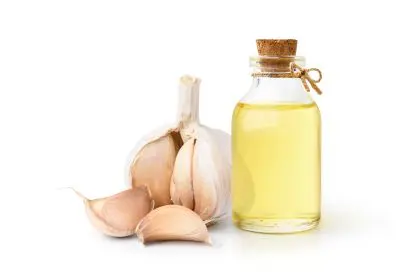Navigating the world of nutrition can feel like walking through a dietary minefield, especially when it comes to managing blood pressure. Some foods are secret agents of cardiovascular chaos, quietly sabotaging your health with every bite. Let’s dive into the most wanted list of blood pressure-spiking culprits that could be turning your body into a pressure cooker.
1. The Sodium Tsunami: Processed Meats
Processed meats are the ultimate blood pressure villains. We’re talking about those delicious yet dangerous deli meats, bacon, sausages, and hot dogs that lurk in your refrigerator. These protein-packed troublemakers are loaded with sodium, a known blood pressure antagonist that makes your blood vessels constrict faster than you can say “heart health.”
One slice of deli turkey might seem innocent, but it can pack up to 350 milligrams of sodium – nearly 15% of your daily recommended intake. The preservation process involves massive amounts of salt, creating a perfect storm for hypertension. Your blood vessels are essentially being squeezed tighter with each bite, creating increased pressure that forces your heart to work overtime.
2. Liquid Sodium Bombs: Canned Soups
Canned soups might seem like a quick and convenient meal, but they’re basically liquid sodium grenades waiting to explode in your cardiovascular system. A single can of soup can contain up to 900 milligrams of sodium – that’s more than one-third of the recommended daily limit in just one serving.
The manufacturing process relies on salt as a preservative, transforming these seemingly harmless liquid meals into potential health hazards. The combination of high sodium content and processed ingredients creates a perfect recipe for blood pressure elevation. Your body responds by retaining water and increasing blood volume, putting extra strain on your heart and blood vessels.
3. The Sugar Conspiracy: Processed Snacks
Processed snacks are the silent assassins of cardiovascular health. Those convenient packaged cookies, chips, and crackers aren’t just empty calories – they’re precision-engineered blood pressure bombs. High sugar content triggers insulin spikes, which can lead to inflammation and blood vessel damage.
Refined carbohydrates cause rapid blood sugar fluctuations that stress your cardiovascular system. The body responds by releasing stress hormones like cortisol and adrenaline, which temporarily increase blood pressure. Over time, these repeated spikes can cause long-term damage to your arterial walls.
4. Alcohol: The Social Pressure Pusher
Alcohol might be a social lubricant, but it’s also a potential blood pressure accelerator. Regular and excessive alcohol consumption can cause sustained increases in blood pressure. While moderate drinking might have some cardiovascular benefits, crossing that line can lead to serious health complications.
Different types of alcohol impact blood pressure differently. Red wine in moderation might have some protective effects, but beer and hard liquor can cause more significant blood pressure spikes. The calories, sugar content, and direct impact on blood vessel function make alcohol a risky beverage for those monitoring their cardiovascular health.
5. Caffeine: The Morning Pressure Kick
Your beloved morning coffee might be doing more than just waking you up – it could be sending your blood pressure on a rollercoaster ride. Caffeine causes a temporary but dramatic spike in blood pressure, lasting for several hours after consumption.
For individuals sensitive to caffeine, a single cup can increase blood pressure by 5-10 points. While regular coffee drinkers might develop some tolerance, those with existing hypertension should be cautious. The combination of caffeine, potential added sugars, and cream can create a perfect storm of cardiovascular stress.
6. Frozen Meals: Convenience with a Cost
Frozen meals might seem like a time-saving solution, but they’re often nutritional nightmares. Packed with sodium, preservatives, and processed ingredients, these convenient dinners are essentially blood pressure time bombs. A single frozen meal can contain up to 1,000 milligrams of sodium – nearly half of the recommended daily intake.
The preservation process requires massive amounts of salt, and the manufacturing techniques strip away nutritional value. Your body receives a concentrated dose of sodium while missing out on essential nutrients that support cardiovascular health.
7. Condiment Catastrophe: Sauces and Dressings
Condiments might seem like innocent flavor enhancers, but they’re often hidden sources of sodium and sugar. Soy sauce, ketchup, salad dressings, and marinades can contain shocking amounts of sodium, turning a seemingly healthy meal into a blood pressure disaster.
A single tablespoon of soy sauce can contain up to 1,000 milligrams of sodium. Salad dressings often hide additional sodium and sugar, transforming a nutritious salad into a cardiovascular challenge. Reading labels and choosing low-sodium alternatives is crucial for maintaining healthy blood pressure.
8. Saturated Fat Champions: Fast Food
Fast food is the ultimate blood pressure perfect storm. Combining high sodium, saturated fats, refined carbohydrates, and minimal nutritional value, these meals are designed to maximize flavor at the expense of health. The immediate impact on blood vessels is dramatic, causing inflammation and restricting blood flow.
A single fast food meal can contain more than a day’s recommended sodium intake, alongside trans fats that directly damage arterial walls. The combination of quick-absorbing carbohydrates, excessive salt, and unhealthy fats creates a comprehensive assault on cardiovascular health.
Survival Strategy: Blood Pressure Defense
Protecting your cardiovascular health doesn’t mean completely eliminating these foods. Instead, focus on:
- Moderation
- Reading nutrition labels
- Choosing whole, unprocessed foods
- Staying hydrated
- Regular exercise
- Stress management
The Bigger Picture
Blood pressure management is a holistic journey. While avoiding these foods is crucial, it’s equally important to embrace a lifestyle that supports cardiovascular health. Your diet is just one piece of the puzzle – sleep, stress management, and regular exercise play equally important roles.
Remember, your body is a complex system that responds to your choices. Every meal is an opportunity to support or challenge your health. Choose wisely, listen to your body, and approach nutrition with intention and care.















